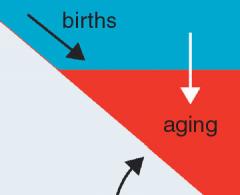
This Article From Issue
January-February 2023
Volume 111, Number 1
Page 3
DOI: 10.1511/2023.111.1.3
To the Editors:
I have always enjoyed reading Henry Petroski’s essays, especially his recent one on crossword puzzles (Engineering, September–October 2022). Indeed, the principles of Taylorism have encouraged me to try to summarize the similarities between solving crossword puzzles and scientific problems.
First, some scientific principles (such as Newtonian mechanics), like some puzzles (such as the Monday New York Times crossword), are straightforward. Conversely, some are more complex (such as quantum mechanics and the Saturday puzzle). Some answers to both scientific questions and puzzle clues require interdisciplinary effort—for example, if the answer is bauplan, you need to know some German. And some questions may have multiple equally plausible solutions. In research, there are competing theories, whereas for example in a puzzle, if given the clue “steep rock face” and the bridging letters L, F, and F, the answer could be either “cliff” or “bluff.” Finally, some puzzles and scientific questions are simply unsolvable, being beyond the knowledge of you and your network.
Recently, your magazine mentioned wicked scientists (“The World Needs Wicked Scientists,” July–August 2022). I wonder if there is an analogous “wicked crossword solver”?
Leo W. Sham
Hong Kong

American Scientist Comments and Discussion
To discuss our articles or comment on them, please share them and tag American Scientist on social media platforms. Here are links to our profiles on Twitter, Facebook, and LinkedIn.
If we re-share your post, we will moderate comments/discussion following our comments policy.